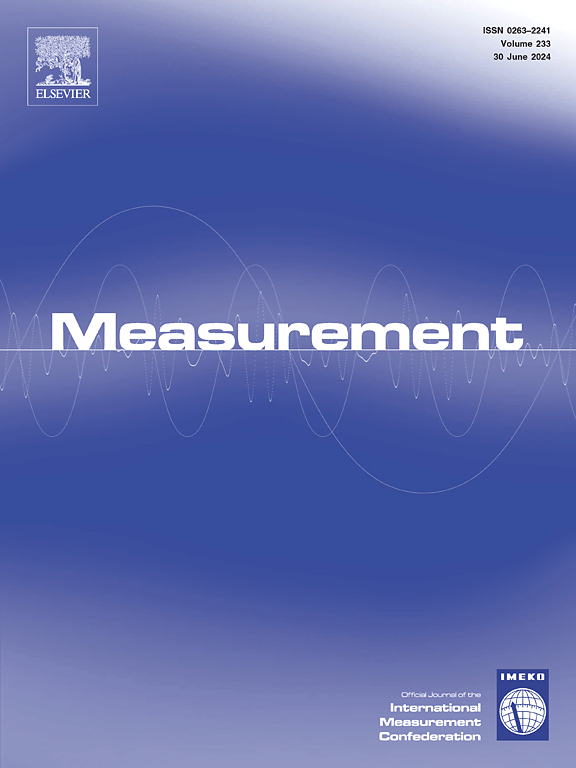利用非接触振动测量误差补偿蚀刻表面形貌研究
IF 5.2
2区 工程技术
Q1 ENGINEERING, MULTIDISCIPLINARY
引用次数: 0
摘要
对表面形貌的全面评估有助于对制成品的特性做出许多适当的反应。精确的测量和数据处理可以提高控制质量。在提高表面形貌测量设备和整个控制系统的精度方面取得了许多优势。由于非接触式测量设备比接触式测量设备速度更快,因此在非接触式系统下鼓励对工业应用中的表面形貌进行分析。然而,这些快速发展的测量技术充满了许多外部干扰,会从根本上影响最终的表面形貌测量结果。其中一个经常被考虑的误差就是与振动严格相关的误差。由于这类外部干扰的影响,表面形貌测量结果会受到高频噪声的影响。为补偿这类测量误差,经常提出的一种标准化方法是重复测量过程并将所得结果平均化。这似乎是最令人鼓舞的建议,然而,工业性能对缩短时间的要求并没有使这一解决方案成为最佳方案。因此,表面计量学中常用的一种著名算法是基于高斯加权函数的数据处理算法 S-滤波器。许多深入研究得出结论,这种滤波方法可能会增加 ISO 25178 表面纹理参数计算的误差。一些 ISO 25178 表面纹理参数的失真度超过 100%,尤其是那些对高频测量噪声敏感的参数。因此,除了一般的高斯滤波器,表面计量学中还应用了许多其他滤波方法。然而,在提出任何建议之前,都必须对振动降噪滤波器的选择过程进行验证。本研究的主要目的之一是指导普通用户如何为使用非接触式白光干涉测量法测量的多种类型蚀刻表面形貌选择合适的滤波方法,同时考虑降低高频噪声及其对表面纹理参数变化的影响。在所研究的滤波方法中,样条线滤波器的结果最令人鼓舞。最后,在 ISO 25178 表面纹理参数评估方面,对所提出的方法进行了验证,并将其与基于重复测量的国际程序所获得的结果进行了比较。本文章由计算机程序翻译,如有差异,请以英文原文为准。
Study of etched surface topography with the compensation of contactless vibrational measurement errors
A comprehensive evaluation of surface topography can contribute to many appropriate responses on the properties of manufactured products. Precise measurement and data processing may allow for improvement in the control quality. Many advantages were achieved in the increasing accuracy of the surface topography measuring devices and whole control systems. Since contactless measuring equipment is much faster than tactile, analysis of surface topography for industrial applications was encouraged under the non-contact systems. However, those rapidly evolving measuring techniques are fraught with many external disturbances which can radically affect the final surface topography measurement results. One of the often considered errors is those strictly related to the vibrations. As the effect of this type of external disturbance, the surface topography measurement results are burdened with the occurrence of high-frequency noise. A standardised and often proposed method for the compensation of this type of measurement error is to repeat the measurement process and average the received results. It seems to be the most encouraging proposal, however, the time-reducing requirements from the industry performance do not pose this solution as optimal. Therefore, a well-known and often used in surface metrology is an S-filter, data processing algorithm based on the Gaussian weighting function. From many intensive studies, it was concluded that this filtering approach may increase errors in the calculation of ISO 25178 surface texture parameters. Some of the ISO 25178 surface texture parameters were distorted by more than 100%, especially those sensitive to the occurrence of high-frequency measurement noise. Therefore, alternatively, to the general Gaussian filter, many other filtering methods were applied in surface metrology. However, the process of selection of a vibrational noise reduction filter must be validated before any proposals. One of the main objectives of the present work is to guide the regular user on how to select an appropriate filtering method for many types of etched surface topographies measured with a contactless white light interference method considering the reduction of both high-frequency noise and its impact on the variations of surface texture parameters. From the studied filtering methods, the spline filter gave the most encouraging results. As the final, the proposed methodology was validated in terms of ISO 25178 surface texture parameters evaluation comparing them to the results obtained by an international procedure based on the measurement repetitions.
求助全文
通过发布文献求助,成功后即可免费获取论文全文。
去求助
来源期刊

Measurement
工程技术-工程:综合
CiteScore
10.20
自引率
12.50%
发文量
1589
审稿时长
12.1 months
期刊介绍:
Contributions are invited on novel achievements in all fields of measurement and instrumentation science and technology. Authors are encouraged to submit novel material, whose ultimate goal is an advancement in the state of the art of: measurement and metrology fundamentals, sensors, measurement instruments, measurement and estimation techniques, measurement data processing and fusion algorithms, evaluation procedures and methodologies for plants and industrial processes, performance analysis of systems, processes and algorithms, mathematical models for measurement-oriented purposes, distributed measurement systems in a connected world.
 求助内容:
求助内容: 应助结果提醒方式:
应助结果提醒方式:


